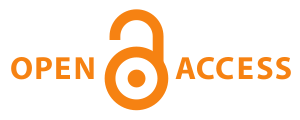The creation of the Open Biomedical Citations in Context Corpus (CCC) is the goal of a one-year project funded by the Wellcome Trust. The aim is to create a new open corpus of bibliographic and citation data that contain detailed information about individual in-text reference pointers in biomedical journal articles.
Messaggi di Rogue Scholar
The Open Biomedical Citations in Context Corpus funded by the Wellcome Trust The Wellcome Trust, which funds research in big health challenges and campaigns for better science, has agreed to fund The Open Biomedical Citations in Context Corpus , a new project to enhance the OpenCitations Corpus, as part of the Open Research Fund programme.

[We’re delighted to announce that the Wellcome Trust/DBT India Alliance joins Europe PMC as a new funder. This brings the Europe PMC funder family to 28 members.]{style=“background-color: transparent; color: black; font-family: "arial"; font-size: 11pt; font-style: normal; font-variant: normal; font-weight: 400; text-decoration: none; vertical-align: baseline; white-space: pre-wrap;”} [ ]{style=“background-color: transparent; color: black;
Imagine, if you will, open access as a train, running up and down the length of the country, travelling anywhere track is laid, delivering papers, books, ideas to all and sundry. Research funders have the opportunity to man the signal boxes and set the open access movement’s direction of travel.

The Wellcome Trust has joined with the Public Library of Science and Google to launch the Accelerating Science Award Program (ASAP) to recognise the use of scientific research, published through open access, that has led to innovations in any field that benefit society.This new, innovative programme recognises individuals who have used, applied or remixed scientific research – published through open access to innovate and

Dr Mark Patterson, director of publishing at the Public Library of Science (PLoS), has been named managing executive editor of a new open-access research journal that the Howard Hughes Medical Institute, the Max Planck Society and the Wellcome Trust are launching next year. Further details are available at the Wellcome Trust web site.

“The Howard Hughes Medical Institute, the Max Planck Society and the Wellcome Trust announced today that they are to support a new, top-tier, open access journal for biomedical and life sciences research. The three organisations aim to establish a new journal that will attract and define the very best research publications from across these fields.

The Howard Hughes Medical Institute, the Max Planck Society and the Wellcome Trust announced today that they are to support a new, top-tier, open access journal for biomedical and life sciences research. The three organisations aim to establish a new journal that will attract and define the very best research publications from across these fields.
A presentation by Robert Kiley (Wellcome Trust) given at the annual conference of the Association of Subscription Agents and Intermediaries that looks at the Wellcome Trust experience with the author-pays, open access model. Looking at Wellcome-funded papers published in the quarter of 2010, Kiley calculates that the average cost of papers published under the author-pays model — either through a hybrid or full open access option – was $2,367.

A new study commissioned by the Knowledge Exchange argues that there can be benefits to publishers if they switch to a model based on submission fees. The report “Submission fees – A tool in the transition to Open Access?”, written by Mark Ware, concludes that this model could be particularly relevant to journals with a high rejection rate.